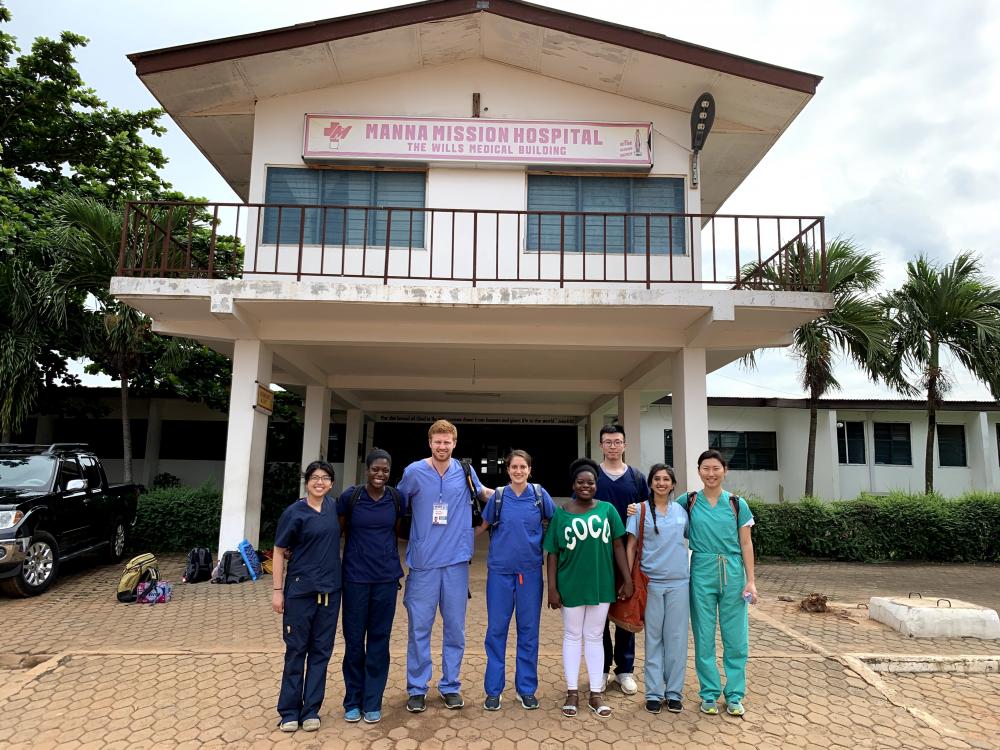VCU School of Medicine Students REACH 4 Ghana
Knowledge is like a baobab tree; no one can encompass it with their hands. – Ghanaian proverb
This summer, seven students from the VCU School of Medicine traveled to Ghana in West Africa. They made the journey because they wanted to see, hear and experience global health — things they wouldn’t be able to extract from a book held in their hands here in Richmond.
As part of the medical school’s REACH 4 Ghana program, the team visited rural schools to talk with female students about reproductive health and distribute reusable feminine hygiene products, which are expensive and hard to come by in the country’s rural areas. They also worked alongside physicians in rural clinics and completed women’s health screenings during their two-week trip.
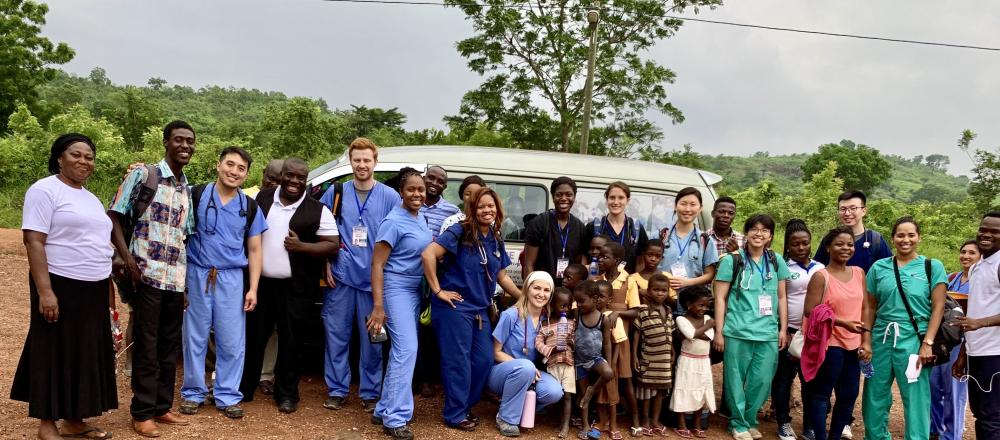
REACH 4 Ghana, or Rural Education and Community Health for Ghana, is a student-led 501(c)(3) nonprofit organization that sent its first team of MCV Campus students to Ghana in 2011.
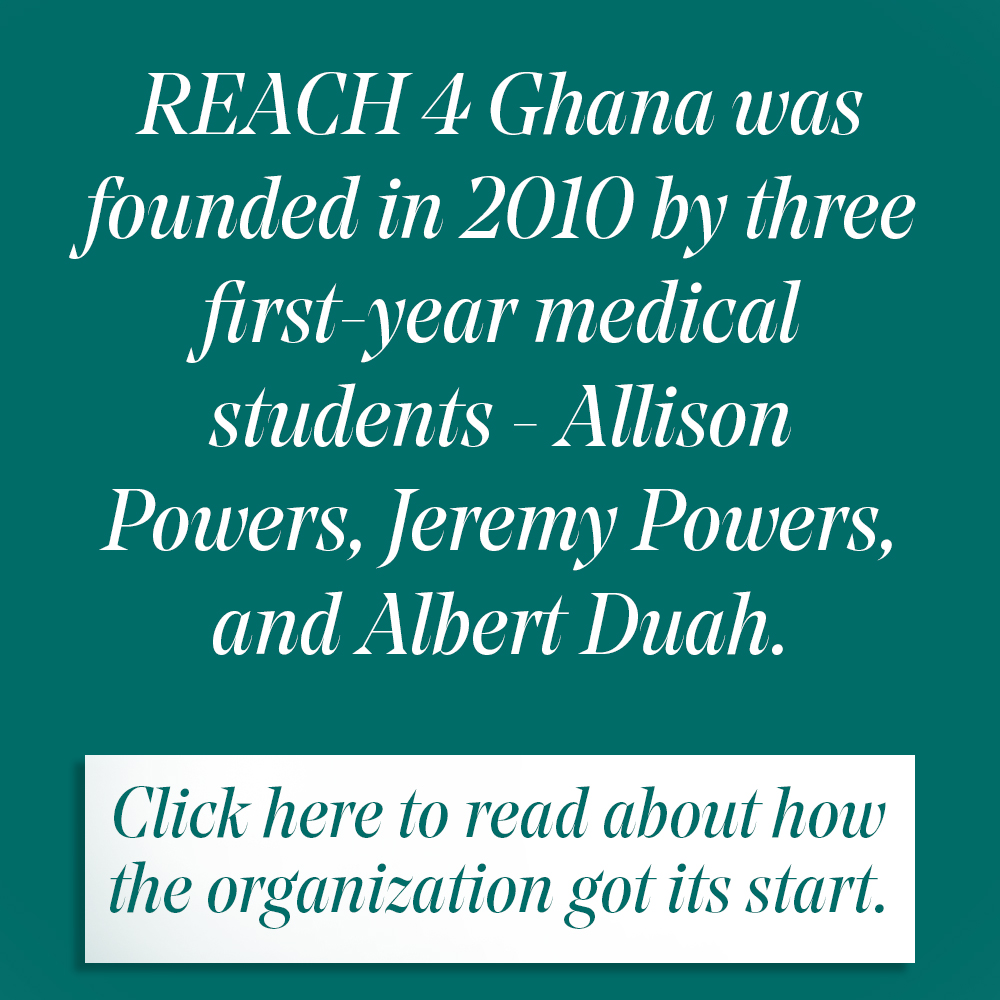 “The exciting thing about REACH 4 Ghana is that each student group has an opportunity to make an impact on the trip,” said Patrick Murphy, a rising second-year medical student who went on the trip this summer. “Last year’s group and this year’s group focused on menstrual health and product education. In years past, we focused on other issues, and in future years we might change and try to adapt to what we’re learning and be moldable to what the communities need.”
“The exciting thing about REACH 4 Ghana is that each student group has an opportunity to make an impact on the trip,” said Patrick Murphy, a rising second-year medical student who went on the trip this summer. “Last year’s group and this year’s group focused on menstrual health and product education. In years past, we focused on other issues, and in future years we might change and try to adapt to what we’re learning and be moldable to what the communities need.”
This year, the team visited multiple schools that enroll anywhere from 200 to 1,000 students. During each of their clinic days, the team saw 100 to 200 patients from surrounding communities, and that had an impact on them as future doctors.
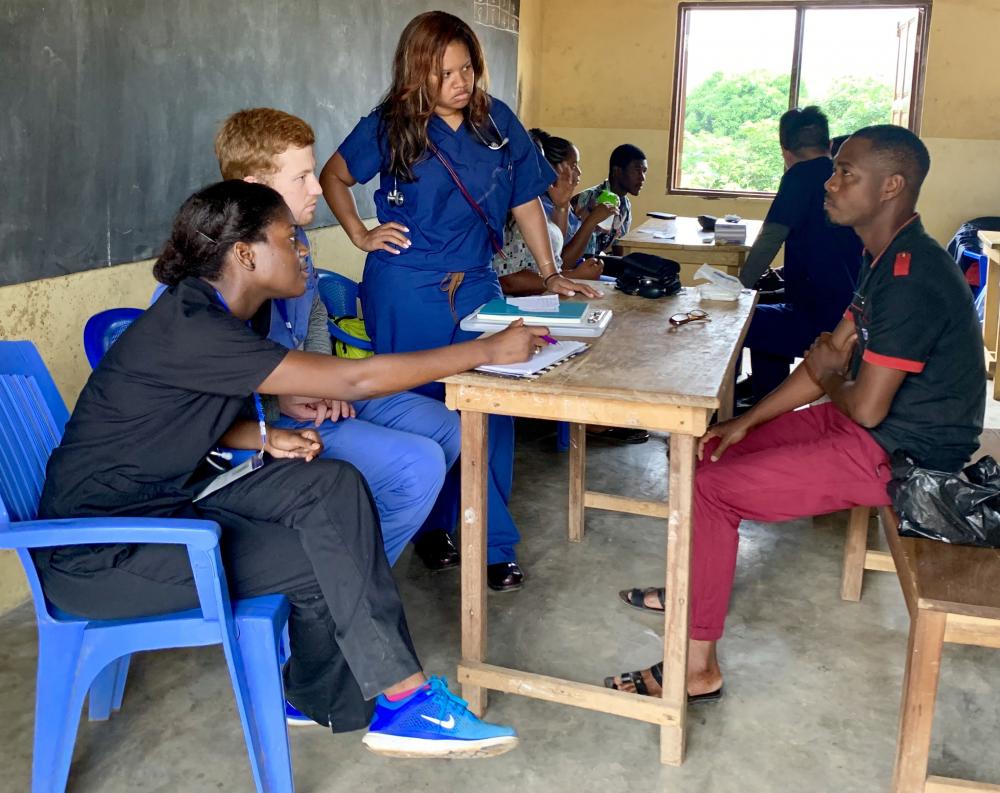
“There isn’t an electronic medical record; there are no records,” said Nicole Karikari, who is also a rising second-year medical student. “It’s just a patient coming in and saying what they’re feeling, and we’re supposed to quickly figure the best thing to give them. Quick thinking and the cultural impact of things are important. Some people would come in who were farmers or had a lot of kids and we had to understand how their lifestyle impacts their care.”
In addition to the healthcare impact the REACH 4 Ghana teams make each year, there is an intangible mark left on the people served, especially this summer.
“They really liked talking to me about America and being in medical school,” said Nicole, whose father is from Ghana. “They could tell that I’m Ghanaian and they would say they wanted to grow up and be a doctor like me and come to America like me. It was nice to see that.”
It is the human being that counts. I call gold; it does not answer. I call cloth; it does not answer. It is the human being that counts. –Ghanaian proverb
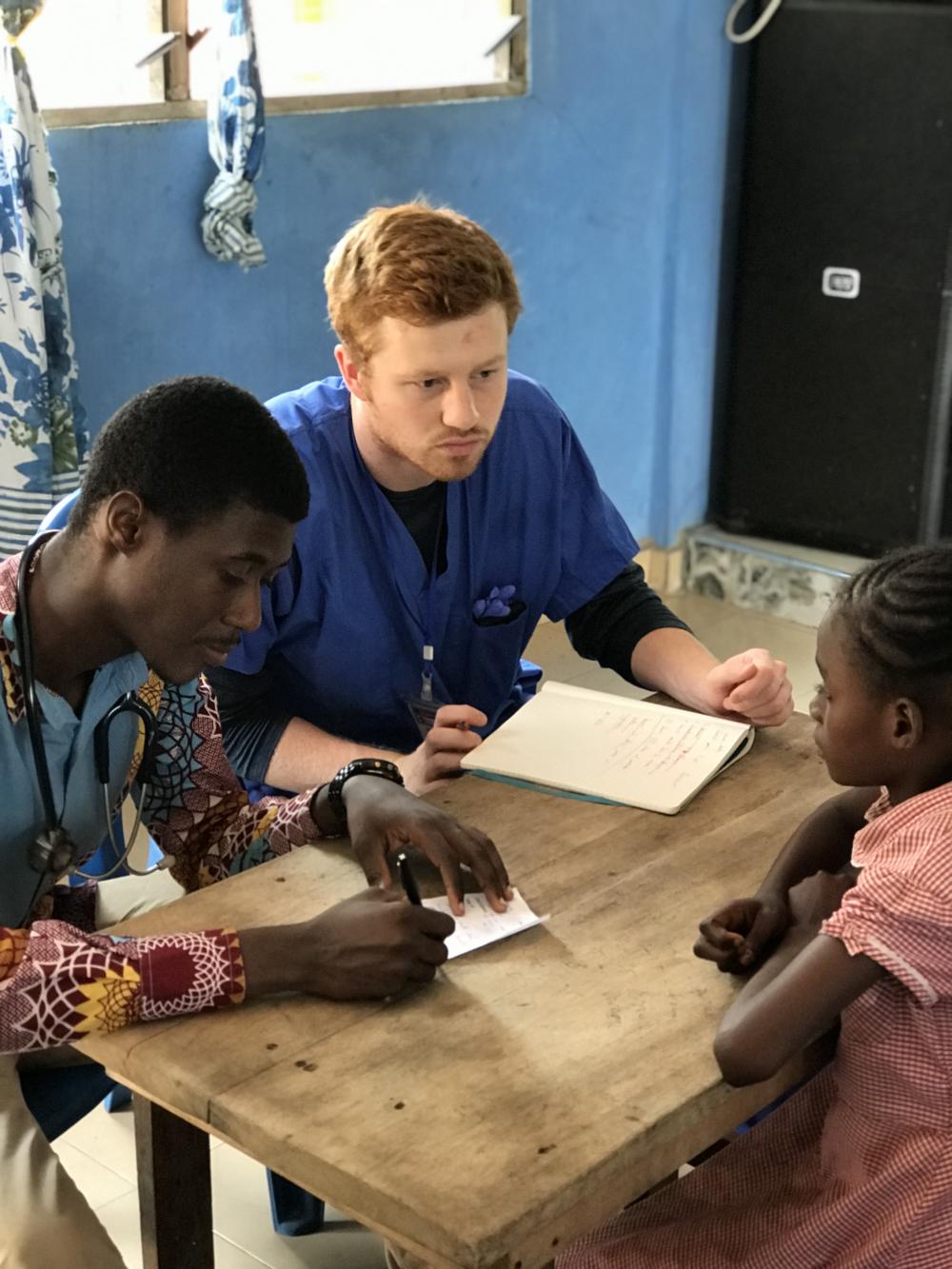
Many of the MCV Campus students who participate in global health projects, such as REACH 4 Ghana and HOMBRE, benefit from having scholarships.
These scholarships have a financial aspect – money is given by generous donors to endow the fund, and financial awards are made to the students – but they are so much more than that. They help students become the people they want to be, and on the MCV Campus, that translates to lifelong compassion and service to other human beings.
Scholarships don’t pay for the trips, but they help make them possible.
“Medical school obviously involves a lot of loans, but since I have scholarships I don’t take out as many loans as I would normally need to, and because of that I can allocate some money toward the trip,” said Nicole, who holds the Dorothy Velma Clark Loveall Scholarship.
“The scholarship has completely opened up my summer to having more opportunity and possibility to explore any global health project I want, because I had this scholarship behind me supporting me,” said Patrick, who benefits from the Harry and Harriet Grandis Scholarship Fund.

Last academic year, donors contributed to 413 endowed scholarships on the MCV Campus. Through these scholarships, students from the VCU Schools of Dentistry, Medicine, Nursing and Pharmacy, and the College of Health Professions, had access to $2.7 million in funding and support that helped them learn and gain invaluable experiences.
“Often medical school feels somewhat overwhelming,” Patrick said. “It’s refreshing to have that complete patient-centered moment. When you’re diagnosing somebody with something like malaria and a doctor walks over and tells you you’re correct, it is a huge confidence boost and reminds us of why we started this journey.”
Friends of the MCV Campus who are interested in supporting student journeys can establish new scholarships or contribute to existing scholarships throughout campus that match their passions. To learn more about all the tools we have available for making gifts, visit our giving page.
